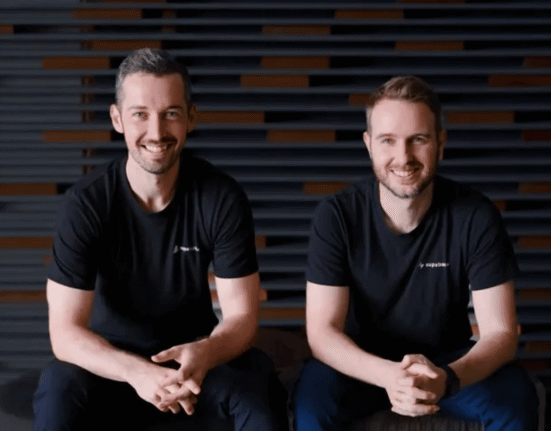When Intuit chief technology officer Alex Balazs was getting his undergraduate mechanical engineering degree at Kettering University more than three decades ago, he recalls the Michigan school’s professors being split on whether they’d let students use calculators in class.
“And now, when you think about it, of course you use a calculator,” says Balazs.
Similarly, he believes today’s AI coding assistants that help developers write software will gain broad acceptance in schools and the workplace. In response, he said Intuit is reevaluating how it tests potential engineering hires during the interviews.
One expected change is that the coding exercises will be more complicated, requiring that candidates solve bigger problems, with the expectation that those candidates will use AI tools to complete some of those tasks. “Because when they arrive inside Intuit, that’s how we expect them to work,” says Balazs.
AI coding tools like GitHub Copilot, Cursor, and Windsurf have rapidly grown in popularity, especially among more junior software developers and engineers. Veteran workers, in contrast, are more pessimistic about the tools and the impact of AI on their jobs, according to surveys.
CTOs and chief information officers frequently laud the big productivity gains the coding assistants provide and the help they give employees in getting off to a faster start at their new jobs as they learn company-specific programming languages. Usage rates, which many CIOs and CTOs have been closely monitoring, have increased steadily over time.
With new tools comes a rethinking of the skills required for an AI-enabled developer workforce, says Deborah Golden, chief innovation officer at accounting and consulting giant Deloitte. It will be less important for engineers to memorize application programming interfaces (APIs), the rules that let software applications communicate with each other, and more critical for them to show good judgement on the job, including determining if there are any risks or bias in AI-written code.
“AI doesn’t just level the playing field, it tilts towards those that can adapt quickly,” says Golden. For both new college graduates and more established working professionals, embracing AI means “anybody can be left behind the same way that anybody can leap forward,” she adds.
Several CEOs of major corporations have said that 20% to 30% of code written within their companies is being done by AI tools. But those claims should be taken with a grain of salt, according to Andrew Rabinovich, the head of AI and machine learning at online freelancer marketplace Upwork. “The numbers can be highly inflated because it’s verbose,” says Rabinovich, referring to AI coding assistants regularly churning out unnecessary lines of code.
When Intuit chief technology officer Alex Balazs was getting his undergraduate mechanical engineering degree at Kettering University more than three decades ago, he recalls the Michigan school’s professors being split on whether they’d let students use calculators in class.
“And now, when you think about it, of course you use a calculator,” says Balazs.
Similarly, he believes today’s AI coding assistants that help developers write software will gain broad acceptance in schools and the workplace. In response, he said Intuit is reevaluating how it tests potential engineering hires during the interviews.
One expected change is that the coding exercises will be more complicated, requiring that candidates solve bigger problems, with the expectation that those candidates will use AI tools to complete some of those tasks. “Because when they arrive inside Intuit, that’s how we expect them to work,” says Balazs.
AI coding tools like GitHub Copilot, Cursor, and Windsurf have rapidly grown in popularity, especially among more junior software developers and engineers. Veteran workers, in contrast, are more pessimistic about the tools and the impact of AI on their jobs, according to surveys.
CTOs and chief information officers frequently laud the big productivity gains the coding assistants provide and the help they give employees in getting off to a faster start at their new jobs as they learn company-specific programming languages. Usage rates, which many CIOs and CTOs have been closely monitoring, have increased steadily over time.
With new tools comes a rethinking of the skills required for an AI-enabled developer workforce, says Deborah Golden, chief innovation officer at accounting and consulting giant Deloitte. It will be less important for engineers to memorize application programming interfaces (APIs), the rules that let software applications communicate with each other, and more critical for them to show good judgement on the job, including determining if there are any risks or bias in AI-written code.
“AI doesn’t just level the playing field, it tilts towards those that can adapt quickly,” says Golden. For both new college graduates and more established working professionals, embracing AI means “anybody can be left behind the same way that anybody can leap forward,” she adds.
Several CEOs of major corporations have said that 20% to 30% of code written within their companies is being done by AI tools. But those claims should be taken with a grain of salt, according to Andrew Rabinovich, the head of AI and machine learning at online freelancer marketplace Upwork. “The numbers can be highly inflated because it’s verbose,” says Rabinovich, referring to AI coding assistants regularly churning out unnecessary lines of code.












Leave feedback about this